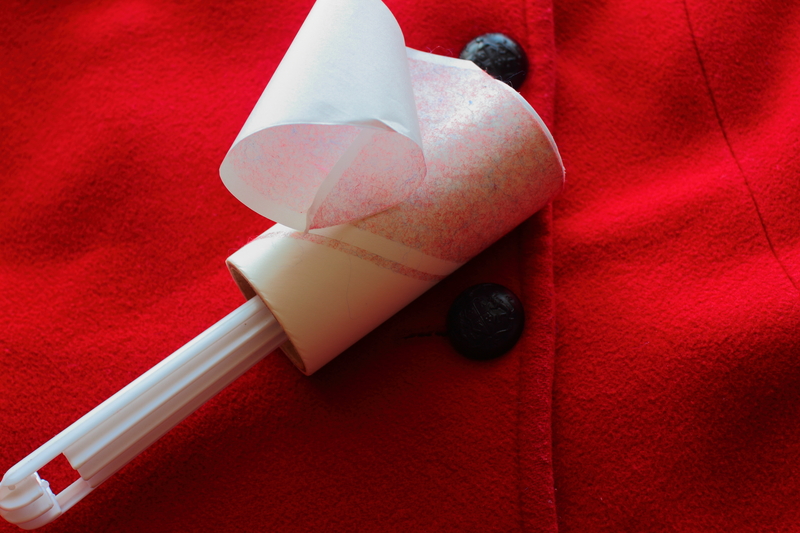Expert Tips for Pristine Curtain Cleaning
Posted on 16/08/2025
Expert Tips for Pristine Curtain Cleaning
Curtains are an essential aspect of every home's interior design. They add a touch of sophistication, help regulate sunlight, and enhance privacy. However, numerous homeowners are surprised to find out how much dirt, dust, allergens, and even mold spores can accumulate in curtains over time. If you want your curtains to last longer, maintain their vibrant color, and keep your living space healthy and fresh, expert curtain cleaning is crucial.
In this comprehensive guide, you'll find the most effective tips and secrets from experienced professionals to ensure your curtains stay clean, pristine, and beautiful. Whether you're dealing with delicate drapes, heavy blackout curtains, or sheer voiles, these insights will help add years to your curtains' life and keep your home healthier.

Why Is Curtain Cleaning So Important?
You might be wondering whether curtain cleaning deserves a spot on your regular household checklist. Here are compelling reasons why you should prioritize curtain care:
- Allergen Control: Curtains trap dust, pollen, pet dander, and other allergens, which can easily spread throughout the room with every breeze or movement.
- Odor Removal: Curtains absorb cooking smells, cigarette smoke, and other odors, making rooms feel stuffy if not regularly cleaned.
- Stain Prevention: Regular cleaning prevents stains from settling, maintaining the curtain's original charm.
- Fabric Longevity: Well-cared-for curtains last much longer, saving you money in the long run.
- Aesthetic Appeal: Clean drapery instantly refreshes any room and highlights your decor.
Types of Curtain Fabrics and Their Cleaning Needs
Curtains come in various materials, each needing a unique cleaning approach. Understanding your curtain's fabric is the cornerstone of proper curtain cleaning.
- Cotton and Linen Curtains: Usually machine washable but might shrink; always check the manufacturer's label.
- Velvet Drapes: Require professional dry cleaning due to their delicate pile.
- Polyester Curtains: Easy to care for and mostly machine washable; avoid high heat during drying.
- Sheer and Lace Curtains: Fragile and prone to tearing. Hand washing is often recommended.
- Blackout Curtains: Often have coatings that can wash off; spot cleaning or steam cleaning is safest.
- Silk Curtains: Extremely delicate; dry cleaning is a must.
Top Expert Curtain Cleaning Tips
Below are pro curtain cleaning tips that guarantee freshness, cleanliness, and longevity:
1. Always Check Care Labels First
*It's vital to start by reading the care instructions that come with your curtains.* The label will tell you whether the curtain is machine washable, needs hand washing, or dry cleaning. Ignoring care guidelines can lead to irreversible damage such as shrinking, fading, or deformation.
2. Regular Maintenance: Vacuuming and Shaking
Even if you can't deep clean your curtains frequently, regular vacuuming with a soft brush attachment removes most dust and keeps curtains fresh. Once a week, shake out your curtains to dislodge dust particles and tiny debris.
- Tip: Vacuum from top to bottom and especially along pleats and hems where dust gathers.
- Tip: Shake gently to avoid pulling down the curtain rod or damaging the fabric.
3. Hand Washing Delicate Curtains
Delicate fabrics such as lace, voile, and embroidered curtains should always be hand washed. Fill a tub with lukewarm water and a gentle detergent.
- Soak: Allow the curtains to soak for 5-10 minutes to loosen dirt particles.
- Gently Agitate: Move the fabric gently in the water--never rub or wring delicate materials.
- Rinse: Rinse thoroughly in cool water until free of soap.
- Dry Flat: Lay curtains flat on a towel to dry to avoid stretching the fibers.
4. Machine Washing: Dos and Don'ts
For fabrics that are labeled as machine washable, observe these curtain laundering tips:
- Remove Hardware: Always take down hooks, rings, and weights before washing.
- Select a Gentle Cycle: Use a 'delicate' or 'hand wash' setting with cold or lukewarm water.
- Mild Detergent: Avoid bleach or heavy-duty detergents that may fade or weaken the fabric.
- Small Loads: Wash one pair at a time to prevent crowding and uneven cleaning.
- Low Spin: Excessive spinning can leave your curtains wrinkled or damaged.
5. Dry Cleaning for Specialty Fabrics
Certain fabrics--like silk, velvet, and some blackout materials--demand professional dry cleaning. Attempting to wash them at home can destroy the material or lining. Take these curtains to a reputable cleaner to ensure their color, shape, and finish are preserved.
6. Spot Cleaning and Stain Removal
Spills and stains are inevitable. Address stains as soon as they happen to prevent permanent marks. Here's how the pros do it:
- Blot, Don't Rub: Dab the stain with a clean, dry cloth to soak up as much liquid as possible.
- Spot Treat: Use a mild detergent diluted in water or a specific stain remover suitable for your curtain material.
- Test First: Always test on a small hidden area to ensure the solution doesn't bleach or damage the fabric.
- Avoid Excess Moisture: Too much water may create rings or watermarks.
7. Steam Cleaning Curtains in Place
For curtains that are too heavy or cumbersome to remove, steam cleaning is an excellent solution. A good garment steamer or upholstery steam cleaner can refresh and sanitize your curtains while they hang. The steam lifts dirt, kills bacteria, and also helps to remove wrinkles.
- Use Gentle, Upward Motions: Start from the bottom and move upwards to avoid drips.
- Work in Small Sections: Overlapping each area ensures thorough cleaning.
- Ventilate: Open windows for quick drying and to release any loosened dust particles.
8. Sunlight: Natural Disinfection but Use Caution
Sunlight has *antibacterial* properties and can help aerate and freshen curtains. However, overexposure to direct sunlight can cause fading and fiber weakening.* After cleaning, let curtains dry outside in the shade when possible.
- Hang Curtains Straight: Prevents wrinkles from setting in.
- Shake Often: While drying, shake periodically to keep fibers fluffy.
- Monitor Drying: Do not leave for too long in harsh midday sun.
9. Ironing and Putting Curtains Back Up
Once curtains are dry, iron on the reverse side using the recommended setting for your fabric. For best results, hang curtains while they're slightly damp--they'll drop any creases naturally with gravity.
10. How Often Should You Clean Curtains?
Experts recommend a "mini clean" every 3-4 months and full deep cleaning twice a year. High-traffic areas or homes with allergies should increase the frequency.
Common Curtain Cleaning Mistakes to Avoid
- Neglecting Regular Maintenance: Waiting too long between cleans makes stains and dust harder to remove.
- Using Hot Water: This may shrink certain textiles and set stains permanently.
- Applying Bleach or Harsh Chemicals: These can damage color, weaken fabric, and cause yellowing.
- Wrinkling and Creasing: Immediate hanging after cleaning helps prevent unsightly wrinkles.
- Improper Storage: When replacing curtains seasonally, store them clean and folded in breathable fabric bags.
Professional Curtain Cleaning: When to Call the Experts
Some situations demand a professional curtain cleaning service:
- Your curtains are made from delicate or specialty fabrics.
- You notice stubborn stains, grease marks, or mildew that home methods don't touch.
- The curtains are extremely heavy, large, or fixed (such as custom window treatments).
- There are symptoms of a dust mite or allergy problem that require deep sanitization treatments.
- You haven't cleaned your curtains in over a year.
Trained professionals use industrial equipment and specialized solvents to achieve a more thorough and longer-lasting clean without compromising the curtain's integrity.
DIY Curtain Cleaning vs. Professional Services
Both methods have advantages, and often a combination of the two is ideal for overall curtain hygiene.
- DIY Cleaning: Best for routine maintenance and spot cleaning of machine washable fabrics. It's convenient, cost-effective, and keeps everyday dust at bay.
- Professional Services: Deliver deep, thorough results for infrequently cleaned, delicate, or specialized curtains.
For homes with pets, smokers, or residents with allergies, a schedule of regular vacuuming and periodic professional cleaning is the secret to consistently pristine curtains.
Eco-Friendly Curtain Cleaning Solutions
If you're environmentally conscious, you'll be pleased to know there are eco-friendly ways to clean curtains:
- Natural Detergents: Use biodegradable soaps that are tough on dirt but gentle on nature.
- Baking Soda: Works as a deodorizer and mild cleaner when dissolved in water or sprinkled on the fabric before vacuuming.
- White Vinegar: Cuts through grease and softens water; ideal for spot cleaning and deodorizing.
- Steam Cleaning: Relies on heat and moisture, not chemicals, to refresh and disinfect your drapery.
How to Keep Curtains Clean Longer
With a few proactive steps, you can extend the freshness of your curtains and reduce the need for frequent heavy-duty cleaning:
- Ventilate: Crisp airflow keeps moisture and mold at bay.
- Sunlight Exposure: Occasional sunlight can naturally deodorize and kill bacteria.
- Keep Windows Closed During Dusty Days: This stops outdoor dust from settling in the folds.
- Use Liners: Protect decorative curtains with an inexpensive liner, easily washed more often.
- Pet-Free Zones: Keep pets away from especially light or sheer drapes to avoid fur and dander buildup.

Final Words: Embrace Pristine Curtains for a Healthier Home
A clean curtain not only enhances your home's beauty but also creates a healthier living environment by reducing allergen exposure and lingering odors. By following these expert curtain cleaning tips--from regular vacuuming and stain treatments to professional services for delicate fabrics--you'll keep your drapes fresh, vibrant, and inviting.
Remember: Consistent care is key! With the right cleaning techniques tailored to your curtain's fabric and usage, you'll enjoy spotless, long-lasting drapery. Make curtain maintenance part of your cleaning routine, and watch your windows transform your space with their renewed brilliance.
FAQ: Expert Curtain Cleaning
-
Q: How often should curtains be cleaned?
A: Ideally, lightly vacuum or shake out dust every 2-4 weeks and deep clean every 6-12 months. -
Q: Can all curtains be machine washed?
A: No; always check the care label. Delicate, heavy, or specially coated drapes require hand washing or professional dry cleaning. -
Q: What's the best way to remove odors from curtains?
A: Sunlight, baking soda, and steam cleaning are all natural deodorizing solutions. -
Q: What if my curtains shrink or fade?
A: Prevent by following label instructions and always using cold or lukewarm water for wash cycles.
For pristine curtain cleaning results, combine these expert strategies and make them part of your regular home care. Your windows, your health, and your guests will thank you!




